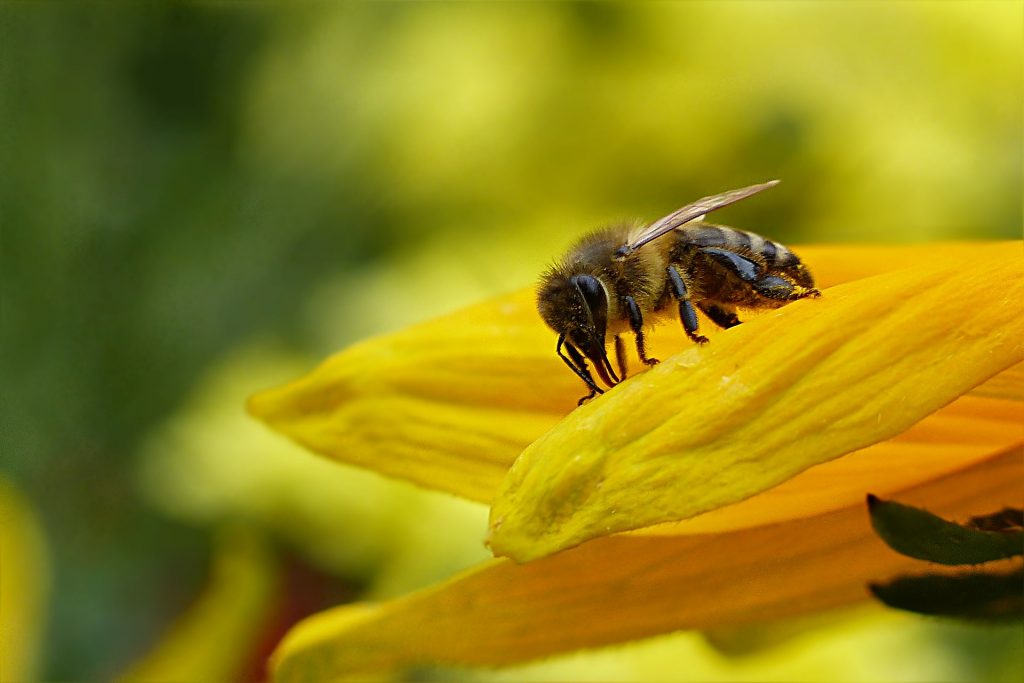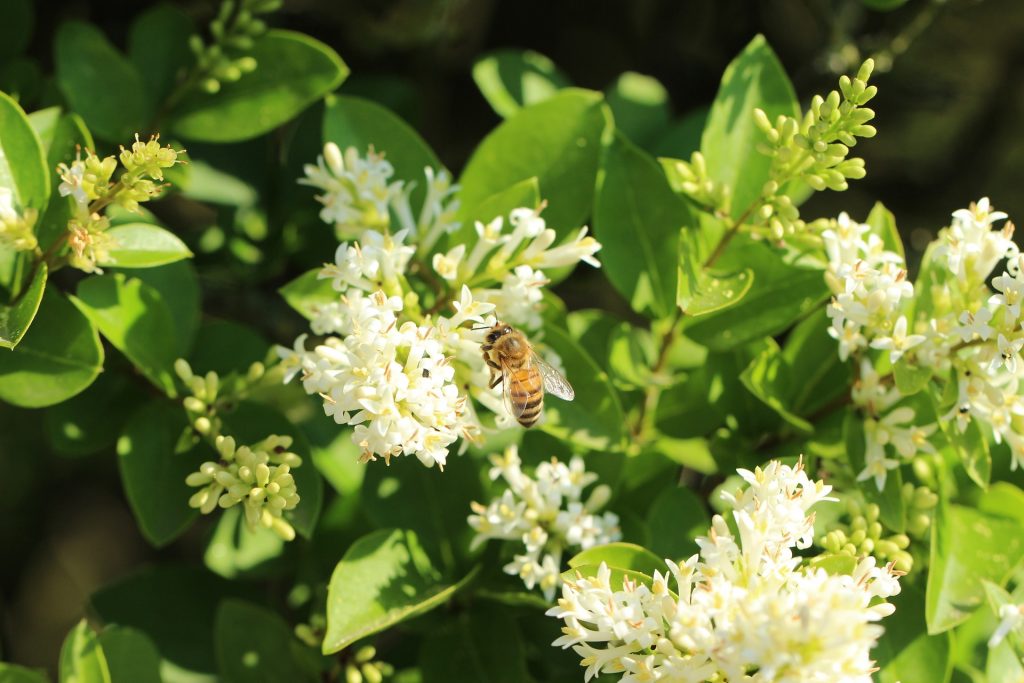 Propolis is a bee product that is made when honey bees collect resinous material from the leaves and bark of plants. This resinous material is then subsequently mixed with beeswax and enzymes to produce propolis. Because the propolis is mainly of plant origin it is not surprising that it contains a large range of phytochemical compounds. Propolis is safe for consumption by humans and is composed of around 50 % wax and 50 % other components including essential oils, pollen, and a range of polyphenols that can account for as much as 58 % of the non-wax constituents of the propolis. If the extract is concentrated during manufacture, the final non-wax component of the propolis may contain up to 78 % polyphenols. Of the polyphenols in propolis, about 20 % are flavonoids, with other polyphenols present including a range of phenolic acids and lignins. Propolis also contains phenolic acids, phenolic aldehydes, phenols and their esters, ketophenols, coumarins, terpenes, vitamin, mineral, proteins, amino acids and sugars.
Propolis is a bee product that is made when honey bees collect resinous material from the leaves and bark of plants. This resinous material is then subsequently mixed with beeswax and enzymes to produce propolis. Because the propolis is mainly of plant origin it is not surprising that it contains a large range of phytochemical compounds. Propolis is safe for consumption by humans and is composed of around 50 % wax and 50 % other components including essential oils, pollen, and a range of polyphenols that can account for as much as 58 % of the non-wax constituents of the propolis. If the extract is concentrated during manufacture, the final non-wax component of the propolis may contain up to 78 % polyphenols. Of the polyphenols in propolis, about 20 % are flavonoids, with other polyphenols present including a range of phenolic acids and lignins. Propolis also contains phenolic acids, phenolic aldehydes, phenols and their esters, ketophenols, coumarins, terpenes, vitamin, mineral, proteins, amino acids and sugars.

Studies have investigated the effects of propolis on the activity of enzyme monoamine oxidase (MAO). This enzyme is able to breakdown the monoamine neurotransmitters noradrenaline, dopamine and serotonin. Propolis is able to significantly inhibit the activity of monoamine oxidase, suggesting that this may be one of the mechanisms by which it is able to cause mood changes in mammals. The propolis also showed significant antioxidant effects and this was likely due to the high content of phenolic acids in the samples.
Evidence suggests that propolis may have beneficial effects against certain mood disorders. For example, in one study, the effects of propolis essential oil was investigated in mice. Mice were administered propolis essential oil and subsequently exposed to experimental stress. The propolis essential oil was effective at decreasing anxious behaviour in the mice, but did not appear to cause sedation in the mice. The researchers also observed a significant fall in the blood cortisol levels of the mice suggesting that the stress response was blunted. In addition, the levels of lipid peroxides fell significantly and at the same time levels of the antioxidant enzyme superoxide dismutase rose significantly in the blood of the mice. This suggests that a significant antioxidant effect was conferred by the propolis. Polyphenols have been shown previously to confer beneficial mood elevating and antioxidant effects on animals and humans, and so the high polyphenol content of the propolis may have been responsible for the effects seen in this study.

Yellow propolis is one type of propolis obtained from Brazil that is rich in triterpenoids, primarily lupeol and 𝛽-amyrin (representing 44.8 % and 13.6 % of the total composition of the extract, respectively). In addition, yellow propolis contains prenylated 𝑝-coumaric acids, acetophenone derivatives, lignans, other phenolic compounds, and diterpenes and other triterpenes. One study investigated the effects of yellow propolis in rats exposed to experimental stress. The results of the study showed that there were anxiolytic and antidepressant effects conferred on the rats by consumption of the yellow propolis. In some cases the behavioural changes were similar to those seen with the benzodiazepine drug diazepam.
In another study researcher investigated the effects of an extract of propolis on the mood of rats exposed to experimental conditions designed to produce anxiety and depression in the rats. The results of the study showed that the propolis extract was able to significantly decrease both the anxious and depressive behaviour displayed by the rats. Further, the rats administered propolis extract had significantly improved antioxidant status compared to control rats. Propolis contains a number of phenolic acids and derivatives including a component called caffeic acid phenyl ester (CAPE). Researchers have investigated the effects of caffeic acid phenyl ester on the behaviour of mice exposed to experimental stress. The results showed that caffeic acid phenyl ester conferred a resistance to stress on the mice, and also decreased both anxious and depressive behaviour. In addition, the caffeic acid phenyl ester also attenuated changes to cellular signalling in neurones, that had occurred as a result of the elevated stress.
Eat Well, Stay Healthy, Protect Yourself
RdB
